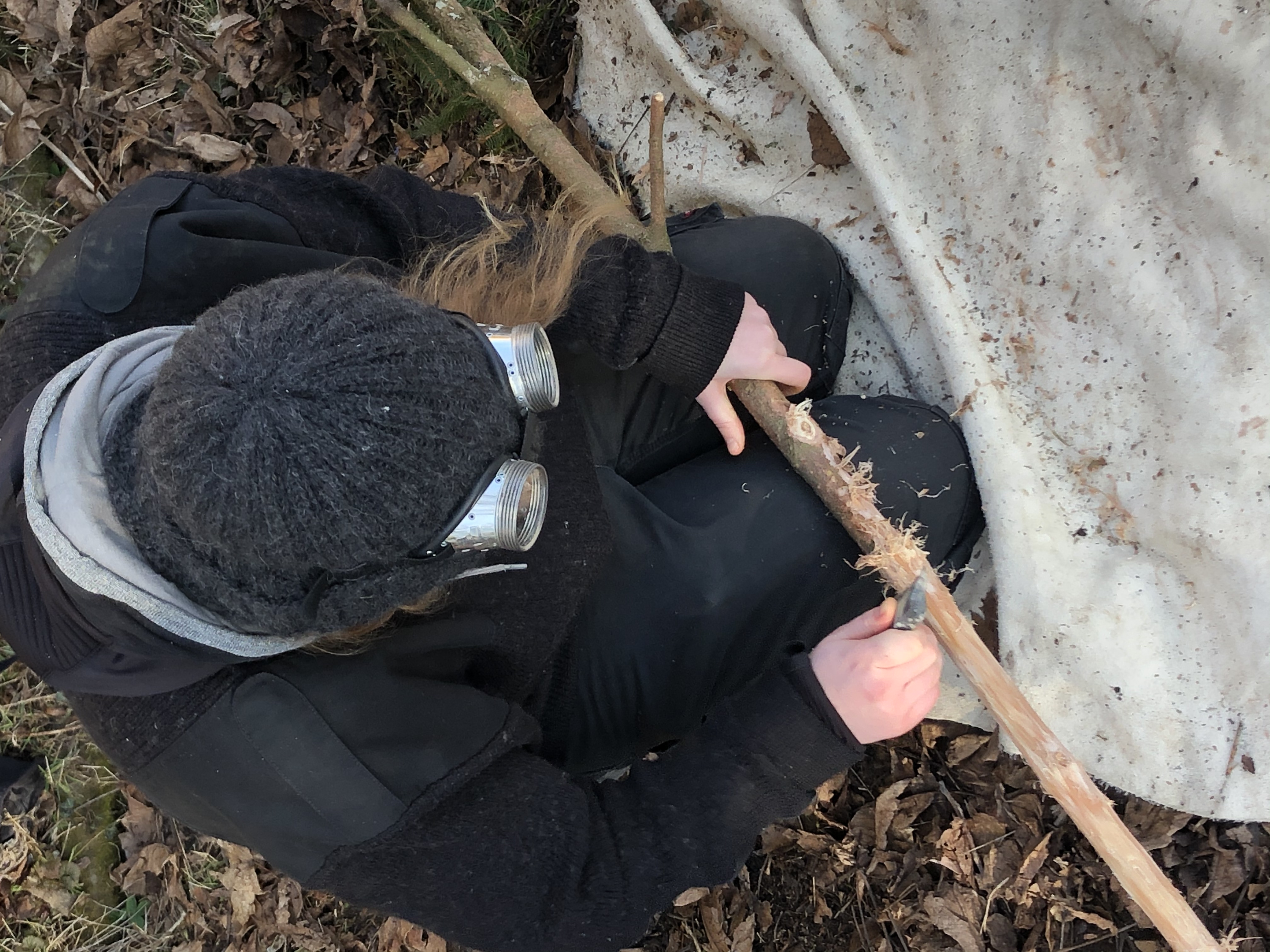Material Culture Laboratory (MCL)
The Material Culture Laboratory (MCL) is a hub for research on material culture in archaeology at the Department of Early Prehistory and Quaternary Ecology, University of Tübingen. The MCL aims to provide researchers and students with the facilities, knowledge and the ability to reconstruct artifact biographies from production to discard.
The laboratory has a major interest in the technological and functional analyses of lithic, osseous and botanical artifacts from all periods.
Laboratory research runs in parallel with experimental activities carried out by students and scholars in the framework of their classes and research projects. Experimental activities are assisted by archaeologists and expert archaeo-technicians with experience in the reproduction and use of organic and inorganic prehistoric artifacts. Undergraduate and graduate students have the opportunity to become familiar with ancient manufacturing technologies, use and functionality of archaeological artifacts during bachelor’s and master’s courses of experimental archaeology. Through a hands-on approach, students learn how to implement experimental protocols and develop their own research projects in the fields including experimental prehistoric archaeology, use-wear and residue studies.
The experimental reference collections are available for researchers interested in techno-functional reconstructions and comparative research.
Facilities and equipments
To support research and scientific projects, the laboratory is equipped with facilities that are open to students and scholars of the Insitute of Prehistory, Early History and Medieval Archaeology and to external collaborators working jointly in projects with the Department of Early Prehistory and Quaternary Ecology.
Access to the laboratory equipment is managed through an online calendar. Please contact Dr. Flavia Venditti (flavia.venditti@uni-tuebingen.de) for more information.
Laboratory equipment
Microscopes and accessories
Metallographic microscope Olympus BX53M: equipped with reflected and transmitted light, 5x, 10x, 20x, 50x objectives, 10x oculars and different observation modes (bright/darkfield, Differential Interference Contrast (DIC), Polarized light). It is attached to a digital high-resolution Olympus camera.
Stereomicroscopes Olympus SZX7: with 1x and 0.5x objectives and providing a 7:1 zoom ratio with 0.8x to 5.6x range and 1x oculars. It is attached to a digital high-resolution Olympus camera.
3D High-Resolution Digital Microscope Hirox HRX-01: equipped with a triple objective zoom lens 20-2500x and multiple lighting (co-axial, ring-light, mixed). The microscope is equipped with Motorized XY Stage (50x50mm), E-tiling and 3D software.
Dino-Lite 5MP Edge series AM7115MZT portable microscope with 20x-220x magnification and adjustable polarization.
Fiber optic lighting KL 1600 LED for stereomicroscope
LED-Ring light 66-40 Photonic for stereomicroscope
Ultrsonic tanks for cleaning procedures
Photography and 3D reconstruction
3D Artec Micro-3D Scanner: 3D scanner ideal for high resolution capturing micro archaeological objects with steadfast accuracy and brilliant color.
3D Scanner Artec Space Spider: 3D scanner for high resolution capturing small and large archaeological objects with steadfast accuracy and brilliant color. Portable
3D Print Formlabs Form 2: ideal for high quality and accurate 3D printing with working technology based on laser stereolithography (SLA). The SLA technology uses UV light to convert the liquid resin into a solid object, tracing the shape of each layer.
Potron FASTCAM Mini AX200: a high-speed camera providing high frame rates with extraordinary light sensitivity and superior image quality ideal for demanding laboratory applications.
Contact persons: Prof. Nicholas J. Conard, Dr. Flavia Venditti, Dr. Gregor Bader, Rudi Walter




